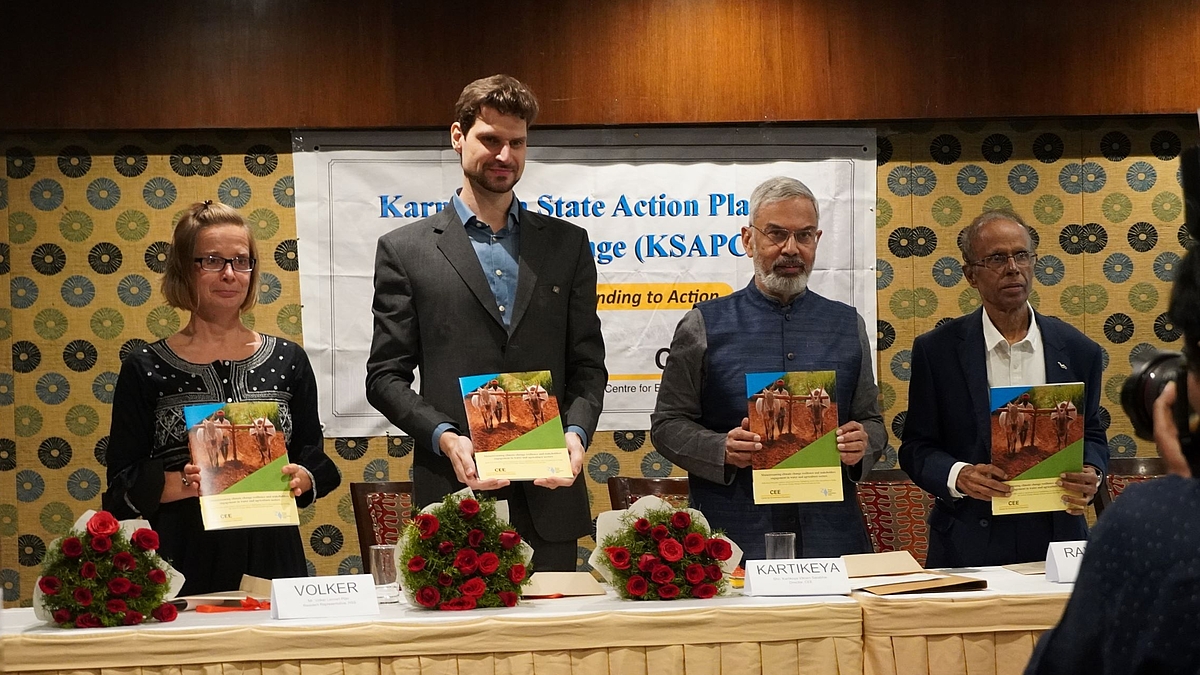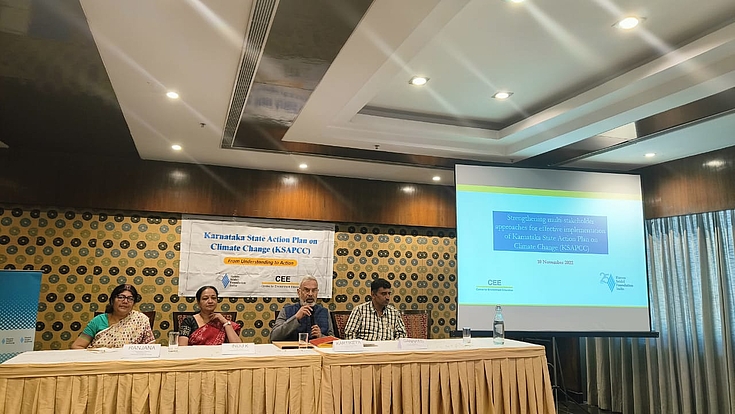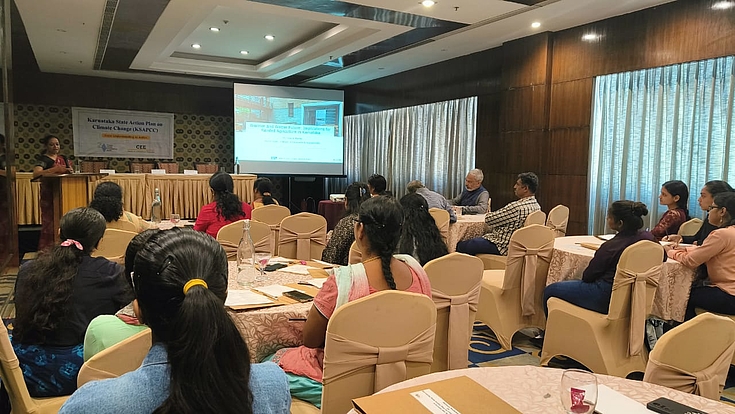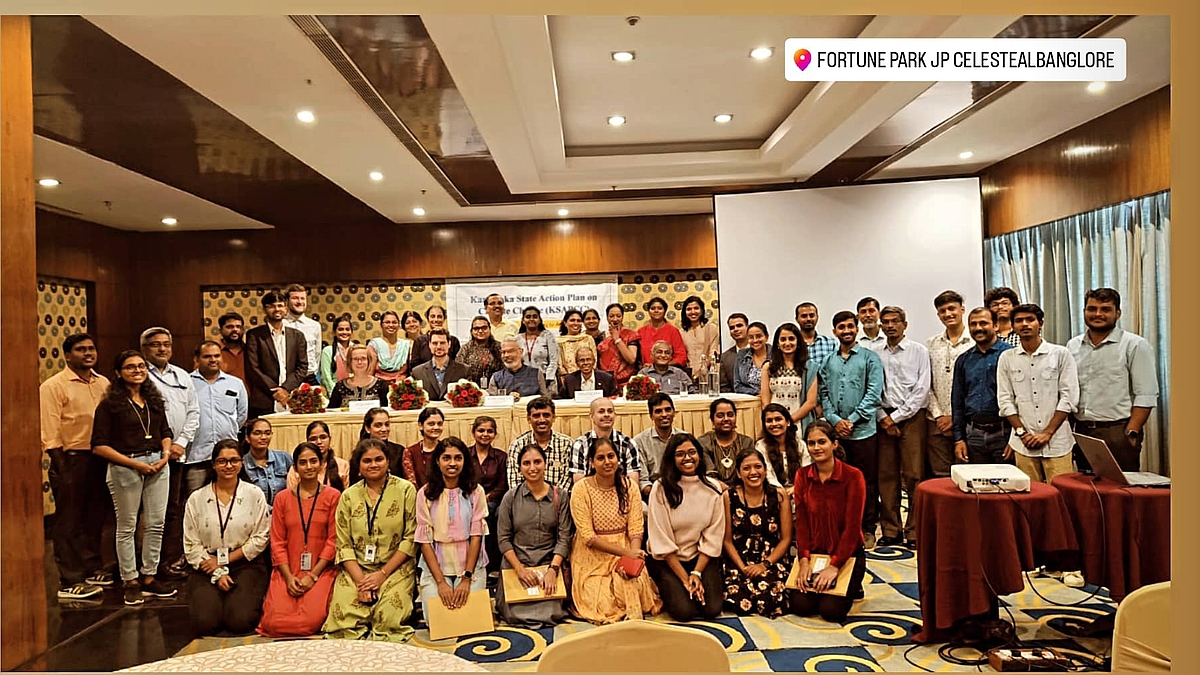HSF-CEE National Workshop
Appraising Centre-State Climate Action Matrix

Ms. Ines Budarick and Mr. Volker Lennart Plän, HSF India, Mr. Kartikeya Sarabhai, CEE, and Dr. A. Ravinda, IAS, unveil the NAPCC-KSAPCC study paper.
Centre for Environment Education (CEE) in partnership with Hanns Seidel Foundation (HSF) organized a national workshop on ‘Climate Change, Water and Agriculture’ in Bangalore on 10 November 2022.
HSF has partnered with CEE South since 2021 to enhance Karnataka’s efforts in dealing with climate change. The partnership has been strengthening multi-stakeholder approaches for effective implementation of Karnataka State Action Plan on Climate Change (KSAPCC). In 2021, HSS supported a study by CEE on KSAPCC with focus on water and agriculture to understand the implementation of the Plan and its efficacy. The key study findings were shared with policy community through a policy brief.

Panel discussion on climate change, water, and agriculture

Participants listening attentively to the speeches by climate experts
In 2022, HSS supported another study by CEE on the linkage between India's National Action Plan on Climate Change (NAPCC) and KSAPCC. The study aimed at providing insights on how and to what extent NAPCC exerts influence on the processes and outcomes of KSAPCC. The National Workshop was held to discuss ways to mitigate and adapt to climate change through enhanced climate action. It also served as a platform to disseminate the findings of NAPCC-KSAPCC study among policymakers, government officials, scientists, academicians, sector experts, and civil society members.
Among others, the following points were underlined during the discussion:
- Karnataka Government is taking important actions on climate change. However, it is not usually attributable to KSAPCC. Larger public and other stakeholders lack awareness on the KSAPCC.
- For integrated action and enhanced outcome thereof, it becomes imperative to make citizens and policy community aware of KSAPCC and build their capacity for action-taking.
- Different actors and groups, ranging from government institutions to civil society, community leaders and individuals, need to come together to implement the KSAPCC in a collective manner.
- Climate issues should not be dealt with in silos but in an integrated manner. Thus, inter-departmental coordination with a clearer outline of roles and responsibilities should be facilitated within government. Together with an enabling legal framework and appropriate funding for the different KSAPCC schemes, this can lead to achieving the desired implementation progress of the Plan.
- Several practices have been found to contribute to advancing the KSAPCC. In the workshop, suggestions were made to conduct a state-wide assessment of the groundwater level for preparing a long-term strategy on water-use. Rainwater harvesting will play a critical role in adapting to the vagaries of climate change.
- Experts highlighted that adaptation strategies in agriculture and the breeding of climate resilient crops can be key measures that help reduce inefficient water-use and other wasteful agricultural practices.

Group photo of the workshop participants
